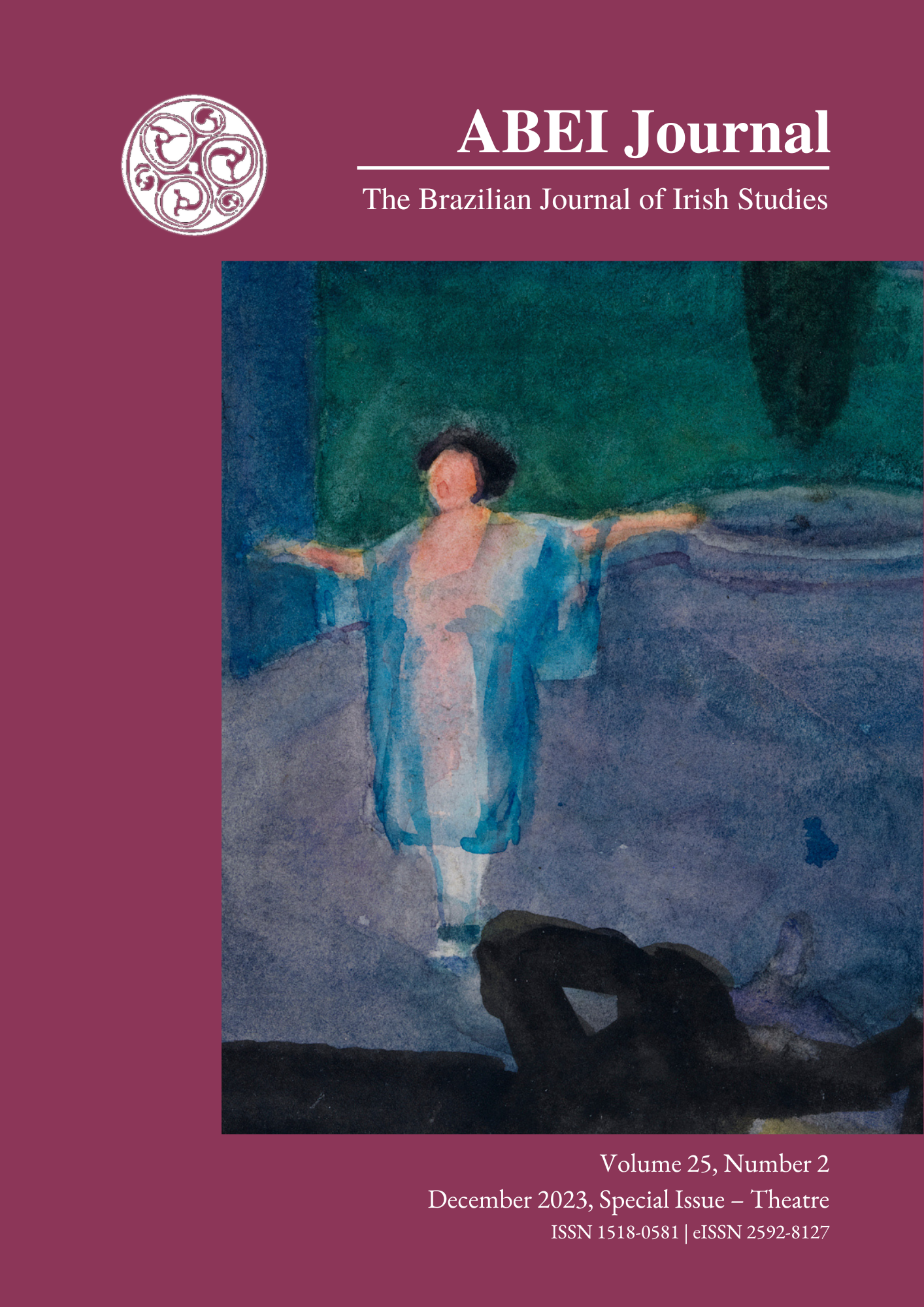The Two-Faced Mirror: The Aristotelian-Hegelian Structure of The Importance of Being Earnest by Oscar Wilde
DOI:
https://doi.org/10.11606/issn.2595-8127.v25i2p19-31Keywords:
The importance of being earnest, Oscar wilde, Drama, TheatreAbstract
For centuries, classical Greek drama was considered, by playwrights and theorists alike, the greatest influence on the structure of the dramatic text. One of its main features, for example, was the law of three units. Elaborated by Aristotle, the prescriptions oriented the plays to take place in a single place, within twenty-four hours, and exhibit a continuous plot, with a beginning, middle, and end. However, for thinkers such as Hegel, modern drama needed new approaches. In his writings, the German philosopher postulated that modern drama should exhibit narrative speed, and a certain dynamic quality, aligned with the internal and external conflicts of the characters. This article aims at analyzing the way in which Oscar Wilde’s The Importance of Being Earnest (1895), balanced both Aristotle and Hegel’s views by engendering a modern text with classical roots, while simultaneously embedding a comedy satirizing the customs of English society.
References
Ellmann, Richard. Oscar Wilde. Companhia das Letras, 1988, São Paulo.
Hegel, Georg Wilhelm Friedrich. Cursos de Estética IV. EDUSP, 2014, São Paulo.
Jackson, Russell. “The Importance of Being Earnest”. The Cambridge Companion to Oscar Wilde, edited by Peter Raby. Cambridge University Press, 1997, pp. 161-177.
Morais, Flávia Costa. Literatura Vitoriana e Educação Moralizante. Alínea, 2004, São Paulo.
Nicoll, Allardyce. A History of Late Nineteenth Century Drama: 1850–1900. Cambridge University Press, 1946, Cambridge.
Pallottini, Renata. Introdução a dramaturgia. Attica, 1988, São Paulo.
Raby, Peter. “Wilde’s Comedies of Society”. The Cambridge Companion to Oscar Wilde, edited by Peter Raby. Cambridge University Press, 1997, pp. 143-160.
Roche, Mark W. “Hegel‘s theory of comedy in the context of hegelian and modern reflections on comedy”. Revue internationale de philosophie, vol. 2002/3, no. 221, 2022, p. 411-430, DOI https://doi.org/10.3917/rip.221.0411. Accessed in: 20 jun. 2022.
Shakespeare, William. Hamlet. Simon & Schuster, 2012, New York.
Wallace, David. “Bourgeois Tragedy or Sentimental Melodrama?” The Significance of George Lillo’s The London Merchant.” Eighteen-Century Studies, vol. 25, no. 2, 1991, pp. 123-143. JSTOR, https://doi.org/10.2307/2738816. Accessed 20 Aug. 2023.
Wilde, Oscar. A importância de ser prudente: e outras peças. Penguin Classics Companhia das Letras, 2011, São Paulo.
Downloads
Published
Issue
Section
License
Copyright (c) 2023 Manoel Carlos Manoel Carlos dos Santos Alves

This work is licensed under a Creative Commons Attribution-NonCommercial 4.0 International License.


